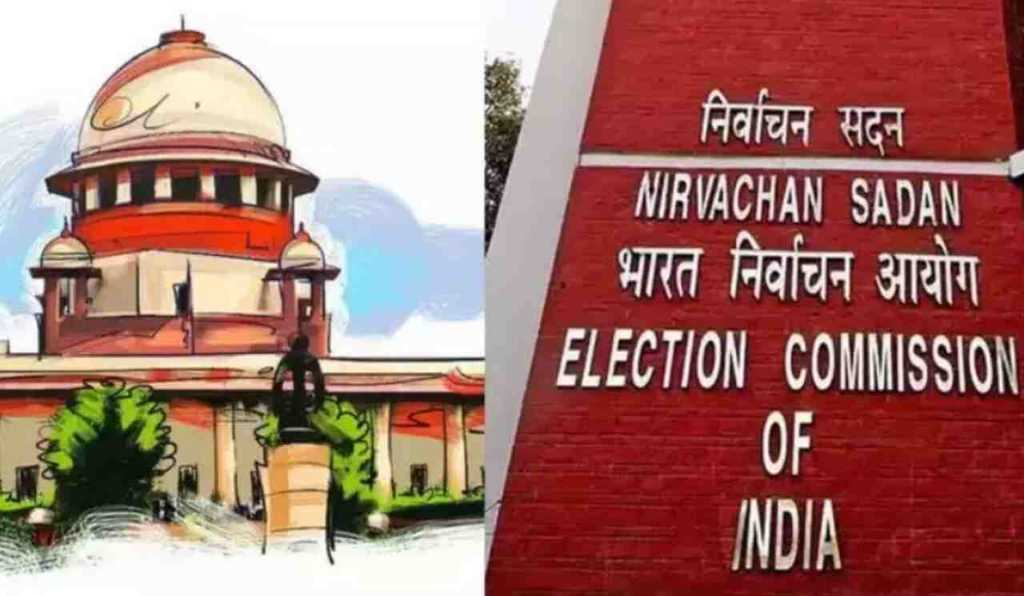Voter card verification in Bihar may be stopped, will the Supreme Court’s 1995 order spoil the game?

The Election Commission has launched a new campaign to check voter cards in Bihar. Which is being called Special Intensive Revision (SIR). Under this, the work of updating the voter list is also going on. But, now the issue of citizenship verification is also being raised in it. The Election Commission of India usually stays away from citizenship verification. ECI pays attention to the claims and objections of the people for adding or removing names in the voter list. The rest of the work is looked after by the Home Ministry.
This decision of the Supreme Court may put a break
Old officials of ECI say that the Supreme Court has also said many times that the work of ECI is to see that only citizens get the right to vote. But, the court has also told what things ECI should keep in mind.
The Lal Babu Hussain case of 1995 is an example. In the Lal Babu Hussain vs Electoral Registration Officer (ERO) case, the Supreme Court had canceled two orders of ECI. These orders were issued on August 21, 1992 and September 9, 1994. In the first order, all the District Magistrates were given the right to find out through police investigation whether a person is a foreigner or not. In the second order, the ERO was given the right to identify foreign citizens and remove their names from the voter list.
The petitions challenging these orders were filed when notices were issued to about 1.67 lakh people in Greater Bombay (now Mumbai). These documents were sought from them. (i) Birth certificate (ii) Indian passport (iii) Citizenship certificate (iv) Proof of entry in the citizenship register.
A similar case came to light in Paharganj, Delhi
At the same time, a similar thing happened in Paharganj area of Delhi. Many poor people from Uttar Pradesh and Bihar lived there. ERO did not accept their documents because they were not according to the rules of ECI.
In 1995, the Supreme Court quashed both the orders of the ECI and said that according to the rules of the ECI, the responsibility of proving citizenship lies on that person, while many people had already cast their vote. The court said that this means that the ECI had already verified them, only then their names were included in the voter list.
The Supreme Court had raised questions on the way ERO works
The Supreme Court made some rules while questioning the way ERO works. The court said that if the ERO feels that the name of a person whose citizenship is doubtful is in the voter list, then before issuing the notice, the ERO should check the previous voter list and keep it in mind.
The Supreme Court said that this investigation should be quasi judicial. The investigating officer should pay attention to all the evidence, whether they are documents or something else and the person should get a chance to present his point and prove his case. The investigating officer should keep in mind the principles of the Constitution, Citizenship Act and Natural Justice.
The problem of illegal immigrants is very high in Assam. This issue came up again during the ‘Intensive Revision’ in 2002. In the HRA Choudhary vs ECI case, many voters in Nagaon, Assam were put in a separate voter list with ‘D’ (doubtful citizenship). This was done after the 1997 order of the ECI.
The Supreme Court had reiterated the 1995 order
The Supreme Court reiterated the rules given in 1995, accepting the right of the ECI. The court said that before removing a person from the voter list, he should be given an opportunity to present his case. Also, the case of doubtful citizenship should be sent to the concerned tribunal/authority and action should be taken accordingly.
The Supreme Court reminded the ECI that its aim was not to do injustice to genuine citizens but to prevent foreigners from being included in the voter list. After this, the ECI worked cautiously and adopted a less intrusive method to update the voter list. The ECI trusted the voters more.
An example is that in 2013, a voter in Goa was found to be a foreigner after contesting the election. The matter went to court and the Home Ministry also had to intervene. After this, the ECI changed its Form 6 (application for inclusion of name in the voter list). Now every voter has to declare that he is an Indian citizen and action will be taken against him for giving wrong information.




